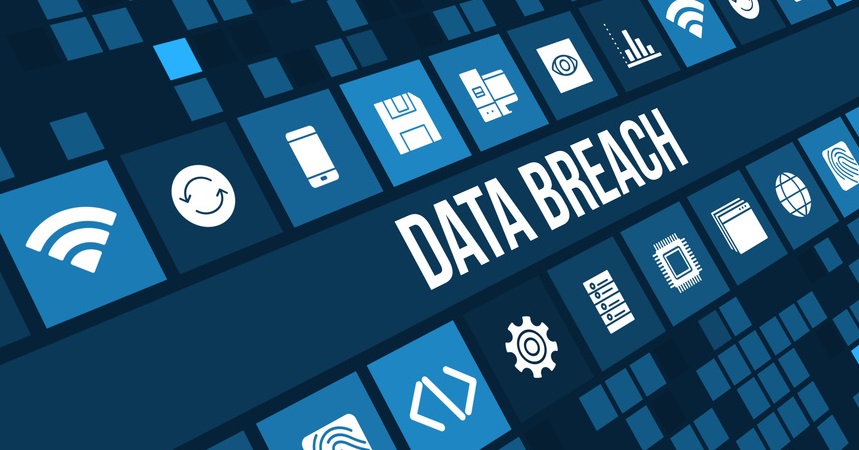Category: Data Group Actions

Virgin Media Data Breach Group Action
A specialist website has been established for people to join the pending Virgin Media Data Breach Group Action. Here, you can sign-up for No Win, No Fee representation.
If you have received confirmation from Virgin Media that you are one of the 900,000 victims of the recent cybersecurity breach between April 2019 and February 2020, you should be eligible to join. The site has been set up so that people can formally start their legal case as opposed to just registering for updates about potential action. We have notified Virgin Media and are actively pursuing live compensation claims.
Here is an outline of what to do to join the action and some information about the legal case that we have started.

Virgin Media data breach compensation advice
We have taken cases forward for victims of the Virgin Media data breach that was announced last week. The compensation cases could be set to form into a formal Group Action.
We can represent customers affected by the data leak on a No Win, No Fee basis. Our lawyers are already fighting for justice in over 40 different group and multi-party action cases, with data breach events the most common type. As we are confident that we can secure compensation for victims of this cybersecurity incident, we are taking immediate action.
If you have yet to sign-up for a legal case, here’s some key information about the breach and the compensation action that we have launched.

The British Airways court case: what you need to know
If you were a victim of the 2018 BA cyberattacks and you’ve yet to join the legal action for the British Airways court case, here is some vital information for you.
It is important to launch your claim as soon as you can, which you can do on the BA Group Action website here. The final deadline to join is just over 9 months away, which is not a great deal of time. There is more to it than just registering your information with a firm, and we will also close our books for new cases in advance of the deadline as well.
Here is some vital information about the court case and what you need to do.

British Airways data breach claim guidance
If you have not yet initiated your British Airways data breach claim, we can guide you in terms of what to do and what to expect in this article.
If you have yet to start a case, there are a few things to consider. One of those considerations is who to instruct to represent you for the claim. In this type of case and action, choosing the right law firm can be incredibly important.
With this in mind, here is some guidance about what to look for and what to ask when considering who to place your case with. Since news of the formal Group Litigation Order (GLO) being established, there has been a noticeable increase in other firms marketing for cases. In the minefield of not knowing who to trust, we have some vital pointers for you.

Dixons Carphone data breach fine issued by ICO
The Information Commissioner’s Office (ICO) has issued their Dixons Carphone data breach fine, and the amount is the maximum penalty available under the old rules.
This was a sustained cyberattack that lasted between July 2017 and April 2018, meaning that it has been dealt with in accordance with the Data Protection Act 1998. The GDPR that could have allowed fines to be up to 4% of a company’s global annual turnover came into effect in May 2018; just weeks after the breach period ended. Had the breach period have lasted longer, a far greater penalty could have been issued. We have seen this with the provisional £183m issued for the British Airways data breach.
We are representing people who are claiming compensation from Dixons Carphone (DSG Retail Ltd) as one of the dozens of data breach group and multi-party actions that our lawyers are fighting for justice in.

Important information about the official BA data breach group action
For victims to be able to have the best approach for joining the official BA data breach group action, here is some important information that you should know.
In October 2019, the formal Group Litigation Order (GLO) for victims of the 2018 cyberattacks was given the go-ahead by Mr Justice Warby. Since then, and even before, a number of law firms have been marketing their services for victims, which is common. However, this can cause some confusion, and so in the interests of clarity, here is some useful information about the official action; because there is only one.
Having seen previous incidents of law firms missing deadlines and misrepresenting their clients, appointing the right firm is important.

Our work in data breach compensation actions
Our work when it comes to data breach compensation actions is becoming increasingly more important in today’s world where it feels like new breaches are taking place all the time.
Traditionally, we have been at the forefront of some of the biggest and most complex group actions in the UK, which are normally medical actions. In 2015, we saw the monumental VW Emissions Scandal that led to us being appointed to the Steering Committee for that particular action.
However, in recent years, our work has steered us in a very different direction.

Missoma data breach action
If you have been affected by the recent Missoma data breach, we may be able to assist you with a data breach compensation claim.
Although we don’t yet know how many people were affected, it is likely that any compensation action for this breach will form as part of a group / multi-party action. This is what we specialise in.
The jewellery brand is understood to be contacting customers affected by the cyberattack, which may go as far back as September 2019. The circumstances surrounding how the breach has happened are remarkably familiar.

Claiming for group action data breaches in 2019
We have taken forward a few new group action compensation cases for data breaches in 2019, as the number of events continues to grow.
Now, the majority of the group and multi-party actions that we’re fighting for justice in involve some kind of data issue. This is simply because of the sheer volume of events that are taking place, as well as the fact that the law allows victims to be able to claim damages.
We thought that the introduction of the GDPR would lead to a decline in the number of events, but it feels like this hasn’t been the case so far. Now, more than ever, our work in representing victims for data breaches has never been more important.

The British Airways Data Event Group Litigation: important information
We have a formal Group Litigation Order (GLO) established for victims of the 2018 cyberattacks that hit BA. It Is called the British Airways Data Event Group Litigation.
It is important to know that there is only one formal GLO for this case. Since news of the GLO forming hit the press, a few other law firms have started to invite people to register claims with them. This includes firms that were not present at the hearing, and it can become a bit of a minefield when it comes to knowing who is best to represent you for a case.
With this in mind, to make sure you are in the picture and avoid any confusion, we will set out some key information about the formal GLO as well as providing an insight into its aims and purpose.

About the British Airways data class action
The British Airways data class action is one of over 40 different group and multi-party actions that we’re involved with. If you’ve yet to join it and you want some more advice about it, we can help you.
This particular class action is somewhat of a pioneering one. It’s the first formal Group Litigation Order at the High Court of Justice in London that involves the GDPR that came into force in May 2018. The UK’s data regulator, the Information Commissioner’s Office (ICO), has the power to issue fines that can equate to 4% of a company’s global annual turnover. In fact, they have issued an intent to fine BA £183m; but this is dwarfed by the potential costs of the litigation that could reach £3bn for pay-outs and is entirely separate to the ICO fine.
If you have yet to join the BA Group Action, here’s some more information about what it is and what it entails.

BA data breach class action guidance
The BA data breach class action is one of over 40 different group and multi-party actions that our lawyers are proudly fighting for justice in.
The BA case is also one of the most prominent ones for us as a firm because it is one of the actions that we represent a large volume of people in. We have been representing BA data breach claimants since news of the incidents first emerged, working on a No Win, No Fee basis for our clients.
If you have yet to start your BA Group Action case, here’s a little about what’s going on and what action you need to take.